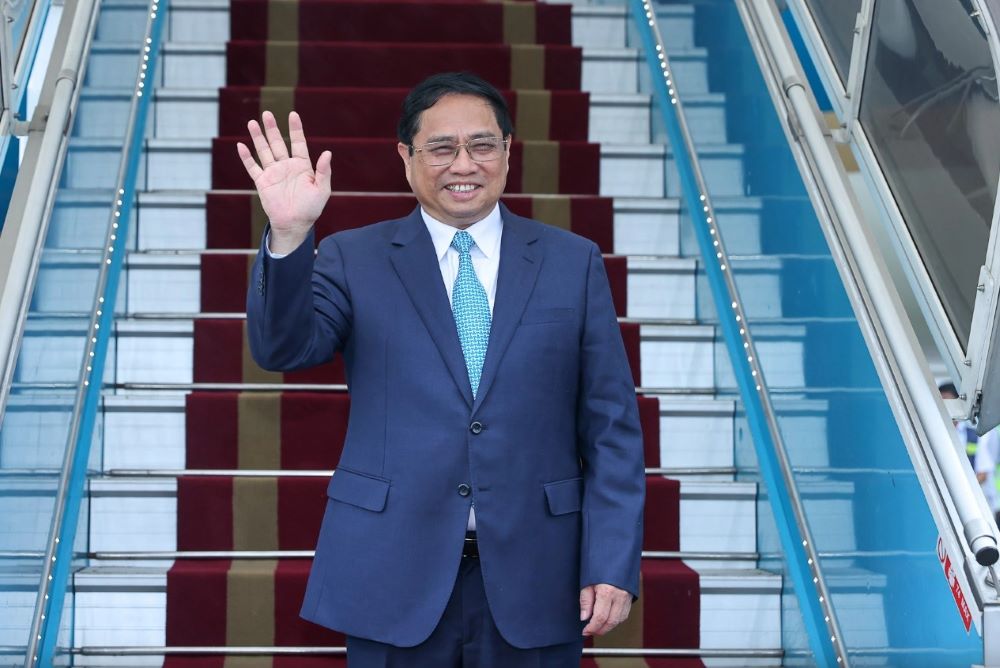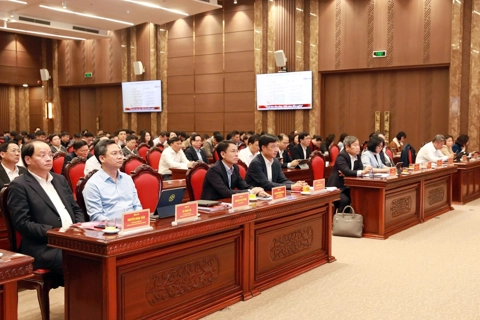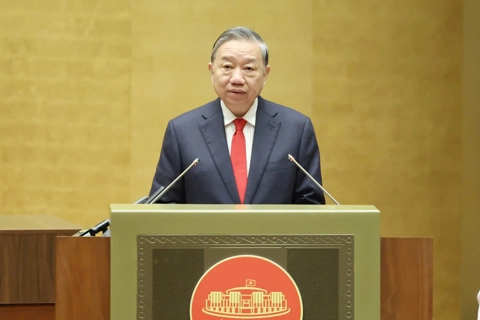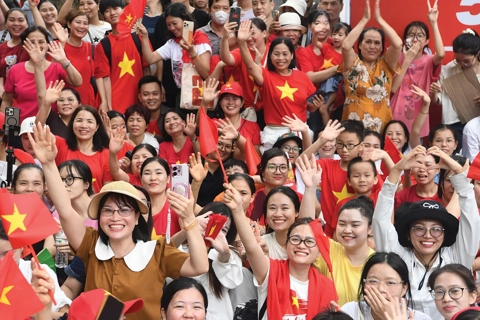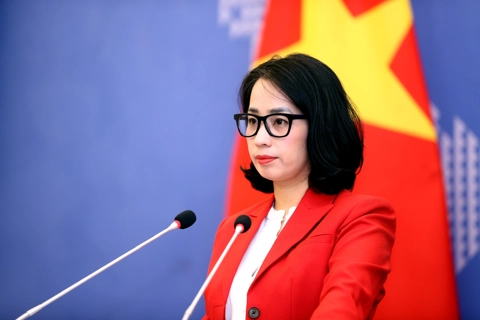Vietnamese Prime Minister leaves for ASEAN Summit in Indonesia
Vietnam, one of the important member states of ASEAN, is working with regional countries for the economic prospect of the 10-member bloc.
Vietnam’s Prime Minister Pham Minh Chinh this morning left Hanoi for the 43rd ASEAN Summit and separate meetings on September 5-9 in Jakarta, Indonesia at the invitation of Indonesian President Joko Widodo.
| Vietnam’s Prime Minister Pham Minh Chinh leaves Hanoi on September 4 for the 43rd ASEAN Summit in Indonesia. Photo: Nhat Bac/VGP |
PM Chinh is accompanied by Minister of Industry and Trade Nguyen Hong Dien; Minister of Labor, Invalids and Social Affairs Dao Ngoc Dung; Minister of Agriculture and Rural Development Le Minh Hoan; and some deputy ministers of National Defense, Foreign Affairs, Investment and Planning.
With the theme “ASEAN Matters: Epicentrum of Growth,” the 43rd ASEAN Summit and Related Summits to be held on September 5-7 would enable regional countries and its partners to share their perspectives and exchange views on various issues, such as the ongoing ASEAN Community-building efforts and the ASEAN Community’s post-2025 Vision.
The series is the annual high-ranking meetings marking the attendance of leaders of Southeast Asian nations and their partner countries, including Australia, Canada, China, Japan, India, New Zealand, Russia, South Korea, the UK, and the US, and the world’s biggest organizations like the United Nations and the World Economic Forum.
The summits are designed to deal primarily with security and trade issues that affect the region.
The 43rd ASEAN Summit and related meetings would focus on four main pillars, according to Indonesia’s Minister of Foreign Affairs Retno Marsudi. The topics include first and foremost, upholding the long-term vision of the region; strengthening ASEAN’s resilience in facing the challenges; promoting ASEAN as a center of economic growth; and making the Indo-Pacific a region of peace and security.
Vietnam-Indonesia cooperation on agenda
PM Chinh’s visit to Indonesia is expected to motivate the comprehensive relations between Vietnam and Indonesia, with a focus on trade which is significant to the ASEAN Economic Community.
Specific measures would help the two countries reach the two-way trade target of US$15 billion this year.
Vietnam, with a population of 100 million and a gross domestic product (GDP) of $430.77 billion, is the third most populous country and fourth biggest economy in ASEAN. Meanwhile, Indonesia, with its 278 million population and a GDP of $1.36 trillion, is the most populous country and the largest economy in ASEAN. Together, Vietnam and Indonesia account for 60% of ASEAN’s total population and 45% of its entire GDP.
According to Vietnam’s Ministry of Industry and Trade (MOIT), Indonesia is Vietnam’s third biggest trade partner while Vietnam is Indonesia’s fourth largest trade partner in Southeast Asia. meanwhile, both countries are big economies in the region with Indonesia being the biggest ASEAN economy.
Vietnam currently supplies a wide range of products to Indonesia such as rice, coffee, rubber, garment and textiles, footwear, mobile phones and accessories, steel and iron, construction materials, and plastic items.
Meanwhile, Vietnam imports Indonesia’s main staples like car parts, palm oil, plastic material, animal feed, chemicals, and metal.
The two countries, notably, support each other at international organizations and forums like the World Trade Organization (WTO), the Asia-Pacific Economic Cooperation (APEC), the Asia-Europe Meeting (ASEM), and the Regional Comprehensive Economic Partnership (RCEP).
Pham The Cuong, Economic Counselor, at Vietnam’s Embassy in Indonesia, said Indonesia is a potential importer of Vietnamese rice and other products like pho (noodles), instant noodles, some typical instant food, milk and milk-related products, and instant coffee.
Moreover, Indonesia, which is home to the world’s largest Islamic community, has the potential for Halal-certified food and drink. Vietnamese exporters should be aware of this requirement when working with Indonesian partners, Cuong shared.
Minister Hassan suggested that Vietnam quickly resume delegation exchange activities, particularly the annual forum and cooperation mechanism between the two countries’ trade sectors that were postponed because of Covid-19.
Indonesia wants to gain knowledge from Vietnam's large businesses that have experience in aquaculture and seafood export.
After a Vietnamese company invested in an electric vehicle factory in the US, Indonesia urged Vietnamese companies to make investments and work together with Indonesian companies to develop the country's electric vehicle industry.
Minister Nguyen Hong Dien praised Minister Hassan's suggestion that the cooperation mechanism be restarted right away. This is a crucial task so that the two parties may swiftly settle issues arising from their trade partnership.
To connect the business communities of the two nations, Minister Dien suggested that Indonesian seafood companies participate in trade fairs and business conferences conducted in Vietnam.
Regarding collaboration in the electric vehicle sector, Vietnam is one of the nations with the highest rare earth resources in the world, whereas Indonesia has an abundance of nickel resources. The nations should collaborate to create the electric vehicle sector based on the potential that each has to offer.
He also expected Indonesia to facilitate Vietnam’s import of coal and crude palm oil.
At the same time, the two nations should reduce trade restrictions to foster investment and trade in each nation.
The two nations also need to look for potential for collaboration in brand-new areas like clean energy and digital transformation.


